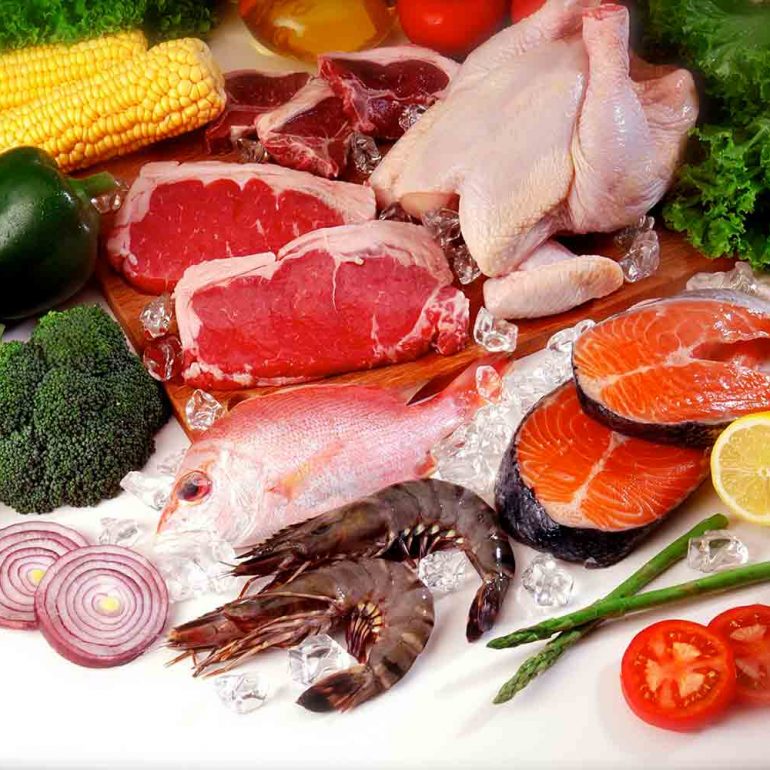Marlene Watson-Tara, the author of Go Vegan and co-founder of the Human Ecology Project, educates on the importance of knowing your carbohydrates and why some diet changes will enable people to keep weight off permanently.
Over the past ten years, we have seen many developments in why we are gaining weight. There are ‘silver bullet’ nutritional supplements and new diets constantly hitting the market, but there has been little improvement for the long-term. Many nations continue to pile on the pounds, including our own; recent NHS research has highlighted that one in three in the UK are obese.
The Food We Eat
Food may be our problem, but it is also our solution. Health, healing, and weight loss starts in our own kitchens where we are in charge of what we eat. One path to sustainable weight loss and good health is to eat a whole-food, plant-based vegan diet and improving our understanding of what different foods do to our bodies.
The consumption of grains is reflected in global history. Grains have fueled the development of civilizations for centuries and are a major source of calories, protein, vitamins, and minerals for billions of people worldwide. A US study has found that some cultures that have based their dietary principles on grains, beans, and vegetables have no weight issues until adopting a standard western diet. Still, today, grains serve as the major source of protein, fats, vitamins, and minerals around the world. There is much to be learned from this for our own food choices.
Whatever our choice of diet, we all have a special relationship with plants. They provide us with the nutrients we require to survive as well as the oxygen we need to breathe. Not only are plants the source of our existence, but they are also the source of medicine and healing.
Knowing Your Carbohydrates
Many of us know that carbohydrates are our source of energy to sustain our lives. However, there is much confusion around their nutritional value. They are not bad for you – they are a macronutrient – but not all are created equal in nutritional value, as there is a difference between simple and complex carbohydrates.
Complex carbohydrate refers to unprocessed forms of carbohydrates which is the way they exist in whole foods. These foods include whole grains, beans, peas, vegetables, fruits, nuts, and seeds.
Simple carbohydrates are found in fruits and dairy products.
These can also be found in sweets, fizzy drinks, cakes, and biscuits, except these are made with processed and added refined sugars. Critically, this means they lack the vitamins, minerals, antioxidants, phytonutrients, and fiber that slow down the metabolism of the sugars. Once consumed, these sugars flood our systems and create an excessive spike in blood sugar – what we know as a sugar rush. Eating too many refined carbohydrates such as white bread, pasta, pastries, and sugar-rich foods is another way of eating excess sugar, which can also cause a rapid rise in blood sugar.
Carbohydrates are crucial for our diet but must be absorbed at a slow rate so that they can be used effectively. This is because excess sugars are stored as fat. Normalizing insulin levels is essential to stop this storage from happening and reducing or eliminating these ‘refined’ carbohydrates and increasing is the best way to accomplish this.
Achieving Hormonal Balance to Burn Fat
Hormonal balance is an important part of understanding how weight loss works and how to get sustainable results. Hormones control your fat-burning switch. There are hormones that both create weight gain and hormones that keep you lean.
Eating a hormone balanced diet is the way forward to not only losing weight but also creating great health and vitality. A great example of this is insulin, the hormone responsible for allowing sugars to be used for energy. Insulin rises and falls based on blood sugar levels and is greatly influenced by what we eat.
Insulin has a sister hormone called glucagon, which is a critical component of our fat-burning biochemistry. When our bodies need more energy and there is not enough glucose, glucagon is secreted. The purpose of this hormone is the exact opposite of insulin: glucagon stimulates the release of stored fats to be used as energy.
Therefore, if we reduce our consumption of simple sugars and refined carbohydrates, the production of glucagon is stimulated which then begins the burning of stored fats. If a healthy diet is combined with even moderate exercise, the combination of less fat storage and better fat-burning is promoted.
Many people across the globe have not only been able to lose weight but also keep it off and live a more healthy lifestyle as a result. While we can follow recommended diets or take supplements, having the knowledge of which carbohydrates should be featured in our diet and a better understanding of how hormones play their part in weight loss or gain is the best way to get meaningful results that can transform your life.
Extra: Top 3 Foods to Turn on Your Fat-Burning Switch
Sea Vegetables
Seaweeds break down and digest slowly compared to processed foods. Seaweeds are also nutrient-dense, especially with minerals, and contribute greatly to hormonal balance. Research has shown that seaweed speeds up weight loss by blocking fat intake and promotes fat burning.
Alginate is a natural fiber found in sea kelp that is very effective at blocking the body from absorbing fat. A 2010 study by Newcastle University demonstrated what has been known for centuries in the Far East: sea vegetables are a powerful tool for weight loss.
Shiitake Mushrooms
Dried Shiitake mushrooms have traditionally been used in macrobiotics and traditional Chinese medicine as an aid to the immune functions of the body and breaking down fatty tissue. Japanese researchers discovered that this is because of eritadenine, a substance that reduces cholesterol. Researchers S. Suzuki and Oshima found that a raw Shiitake eaten daily for one week lowers serum cholesterol by 12%.
Daikon Radish
This is a natural diuretic with a very gentle action that is excellent for managing fluid retention which so often accompanies weight gain. The more fat cells we have, the more fluid we store.
A long-time vegan, lover of animals, nature and life and passionate about human ecology. As an eternal optimist, increasing the number of people worldwide to switch to a wholefood, plant-based diet and vegan lifestyle is her mission. Together with her husband Bill Tara, they have created The Human Ecology Project.




